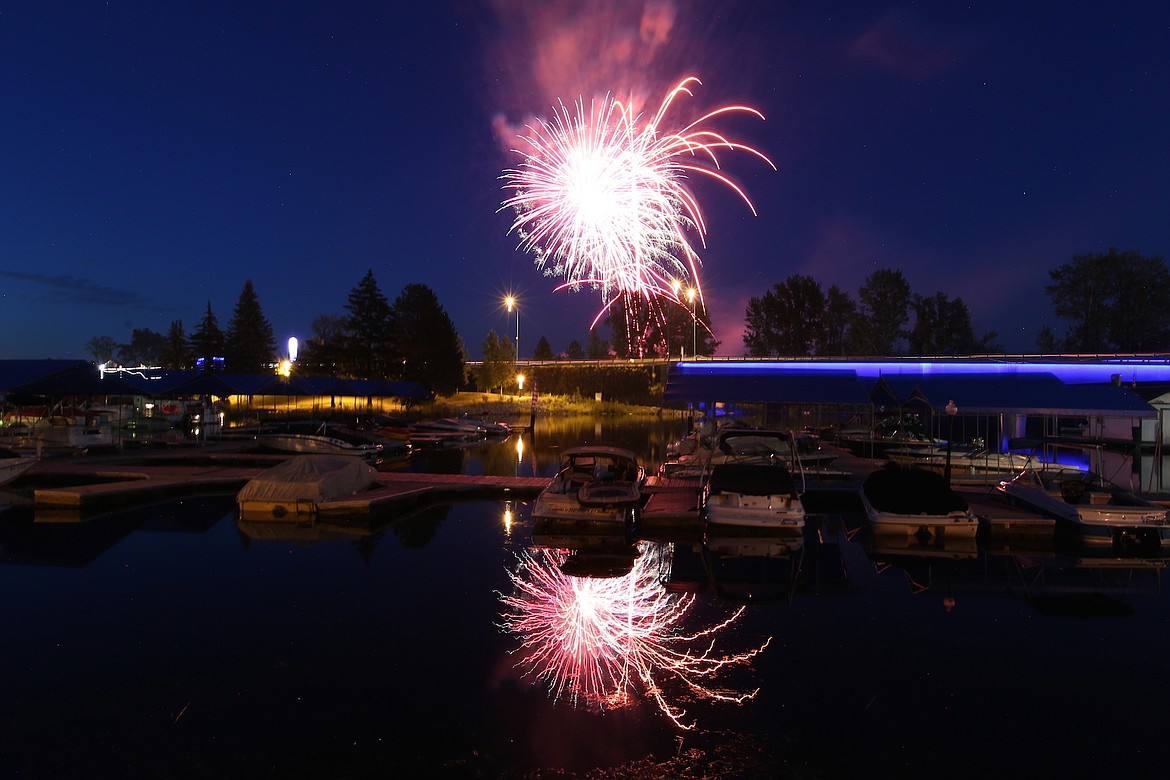Trauma and fireworks: Tips for vets, pets and survivors
▶️ Listen to this article now.
Although fireworks are a staple for many July 4 celebrations, (though somewhat dampened this year due to a nearly county-wide fireworks ban) the traditional celebration can cause challenges for people with trauma and post-traumatic stress disorder.
PTSD can be caused by a variety of experiences, said Eric Ridgway, counselor and founder at The Human Connection counseling services. These include, but are not limited to, fighting in a war, surviving assault, getting into car accidents and other traumatizing experiences.
“If [someone] truly qualifies for the diagnosis of PTSD, post-traumatic stress disorder, it's that their body is still carrying that trauma. And it gets reactivated by experiences,” he said.
Things like fireworks, he said, often trigger a response for people with trauma that can’t be entirely controlled.
“Trauma is an experience that gets seared into our bodies. And it's not just a thought, or a feeling. It gets seared into physiology,” he said. “It gets locked into our biology, the cells in our body. And so if people have an understanding, that it shifts our thinking about fireworks.”
Although it can’t be completely avoided, there are steps people can take to mitigate the negative impacts of PTSD. For those who have it, making sure to have someone else around when they know they might go through triggering experiences can help, Ridgeway said.
“They shouldn't be alone on the Fourth of July,” he said. “They should have support around them.”
In some cases, it can also be helpful to talk to a doctor about anti-anxiety medication.
“I don't go there first thing, you know, ‘Give everybody drugs,’ he said. “But in extreme cases, it's better for an animal or a person to take medication to keep their nervous system from being over-stimulated.”
For friends or family of people with trauma, it can be helpful to acknowledge that the trauma exists — with the caveat that “nobody wants to feel crazy [or] broken.”
Trauma also doesn’t just affect humans, Ridgeway said. Animals can also be negatively affected by fireworks, and have similar reactions to people.
Andrea Nagel, director of storytelling and partnership at the Better Together Animal Alliance, said the shelter portion of the organization plays music and offers distractions to animals such as food puzzles and rubber Kong toys to chew to help them cope with the noise.
More pets are also lost on July 4 than any other time of the year, Nagel said. Animals should be kept inside, or enclosed spaces and barns for larger animals.
In some cases, she said, veterinarians can also prescribe anti-anxiety medication or sedatives for pets.
For both people and animals, Ridgeway said, PTSD responses are the body reacting to stimulus as if the trauma is currently happening — even when it isn’t. Those trauma responses can get worse when those triggering situations come up if they aren’t handled the right way.
Something else people can do who plan to set off fireworks (if it’s allowed where they live) is to let their neighbors know. Cities or other official entities that do fireworks shows let the public know when it’s happening, which can also help those with PTSD prepare mentally prepare, and let pet owners make sure their animals are somewhere safe they can't escape.
“There are people with PTSD all over Bonner County, and it’s not just veterans, it’s people who have experienced some type of trauma,” he said. “So if as a community, we can be aware that others may struggle with PTSD that we ourselves may not. We could be considerate and realize not everyone hears fireworks and goes, “Isn’t that’s fun.’”

